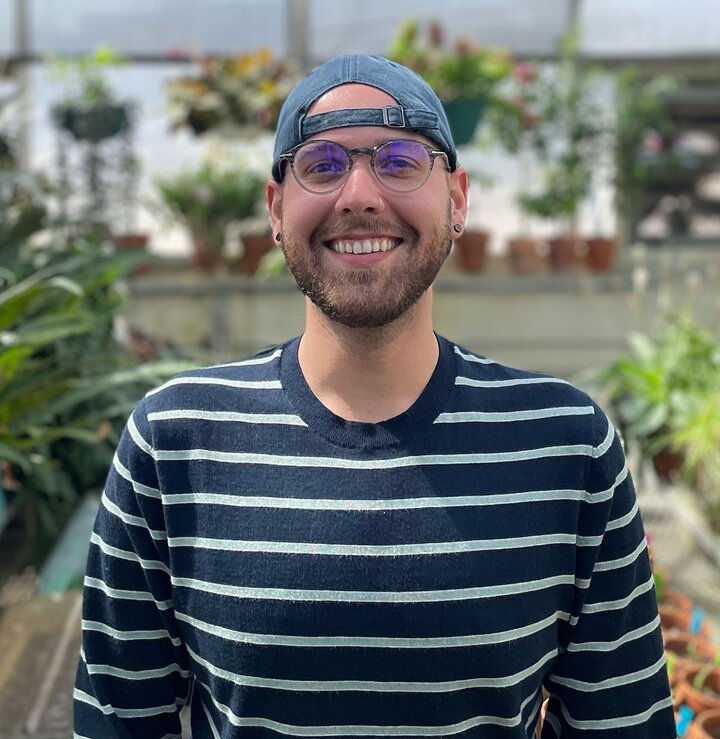
PROGRAM: BIOCHEMISTRY
GRADUATE STUDENT IN DR. REBECCA ROSTON'S LAB
How do you think PSI has helped the plant science community in general?
One area in which the Center for Plant Science Innovation thrives is inviting speakers from across the country (and sometimes internationally!) to UNL. Along with their seminars, students postdocs and faculty have the chance to meet these professionals and explore future opportunities in academia, industry, and government labs. The students and postdocs are often actively involved in the selection process for speakers and it serves as a great opportunity to expand soft skills and networking abilities along with learning from outstanding plant scientists.
What does PSI mean to you and how has the center helped you prosper in your career?
The continued support of the graduate and postdoc group, CROPS (The Collective Research Organization of Plant Scientists) by PSI has always shown me the dedication the Center has to improving the skills of its trainees. By providing funding to CROPS, we can organize workshops, invite speakers, and host social events to strengthen our community at UNL, while improving our skills along the way, and engaging in outreach with the Lincoln community.
The diversity of labs in PSI has helped me throughout my graduate career because more often than not, if I have a question about an experiment or a weird result, I can look to a PSI colleague and I know I’ll be able to talk out whatever I am facing.
Where do you see yourself in the next ten years and what is one thing you would say to the younger version of yourself?
I see myself in a place where I am fulfilled academically and personally. Whether it be in academia or industry, teaching, and mentoring will always be a passion of mine, and I hope that my future job will allow me to continue to pursue these alongside my work. I would tell myself to take risks when they’re presented to me because the opportunities might just present themselves once.
Looking back on your time within PSI, what are you most proud of and why, and what do you consider to be the strengths of the PSI?
I am most proud of the work I have been able to do with CROPS, especially through the pandemic. The leadership board I served on was able to create an online seminar series spanning five Midwest universities to provide early career researchers with the opportunity to present their work and engage with colleagues during a time when in-person meetings came to a halt.
PSI has a wide variety of strengths in part due to the breadth of research/departments/labs that find a home in the Center. Because of this, there is a great opportunity for collaboration and support, and along with CROPS, there are multiple opportunities for trainees to grow professionally while expanding their social networks.